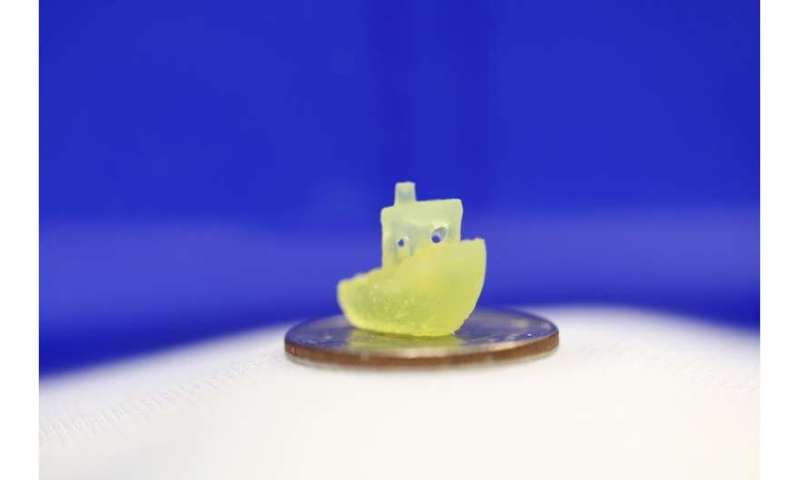Best of Last Week—Why Venus spins so slowly, new kind of 3D printing, just 25% feel recovered from COVID after a year

It was a good week for space science as University of California planetary scientist Stephen Kane, found that Venus's atmosphere explains why the planet rotates so slowly. Without it, he notes, the planet would likely have ceased spinning altogether. And an international team of researchers studying data from a seismometer placed on Mars by NASA's InSight lander has found evidence of the two largest marsquakes to date. Also, the team at Canada's Western University who run what they have named the all-sky camera network, observed evidence of a bright fireball event recently—it was found to be a meteor that crashed into the ground in southern Ontario.
In technology news, a team of engineers working at the Rowland Institute at Harvard University developed a new kind of 3D printing that uses a laser to harden material inside of a gelatinous resin, avoiding the need to print layer by layer. And a combined team from CSIRO's Data61 and Monash University developed a model that can help inexperienced users identify phishing emails, thereby avoiding falling prey to such attacks. It involves a machine-learning algorithm that identifies such emails and alerts the user. Also, a team at Consumer's Energy in Michigan outlined a project called the Ludington Pumped Storage Plant, where water is pumped from Lake Michigan using a renewable energy source into a nearby raised reservoir to serve as a giant battery. And a team at Delft University of Technology working with Intel announced that they had successfully fabricated qubits using an advanced semiconductor manufacturing processes, taking another step toward producing quantum computers on a large scale.
In other news, a group at the U.K.'s National Institute for Health Research Leicester Biomedical Research Center led a study involving 2,000 patients that showed that after hospitalization due to COVID-19, only approximately 1 in 4 patients felt fully recovered after one year. Also, officials working at CERN's Large Hadron Collider announced that after three years of maintenance and updates, the huge apparatus was finally restarted. And finally, a combined team from Kaiser Permanente and Pfizer found that the protection from hospitalization due to omicron gained from a third dose of the Pfizer vaccine waned after just three months.
© 2022 Science X Network